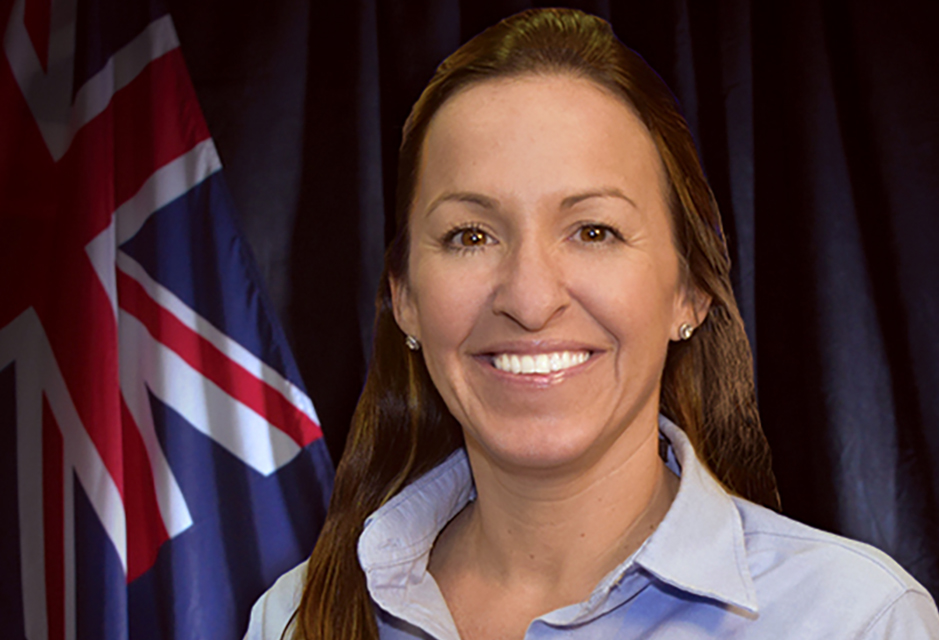Cayman: DCFS, HMCI shelter management training outlines challenges

GRAND CAYMAN (GIS) – More than hundred and fifty people attended shelter management training on Wednesday (27 May). According to organisers, the figure was a significant increase on previous years despite COVID-19.
The three-hour-long Zoom meeting for volunteers was coordinated by the Department of Children and Family Services (DCFS) and Hazard Management Cayman Islands Services (HMCI). Presentations on shelter management were given following remarks by the Ministry of Community Affairs Chief Officer, Teresa Echenique.
“As volunteers this year you are signing up to manage shelters in the event of hurricanes but also for all national disasters,” she said.
“Owing to an eventful 2020 so far, we’ve also had to open shelters due to a significant fire and smoke hazards. Now with COVID-19 protocols still in place, your support is more needed than ever to safeguard residents on two fronts while ensuring social distancing is maintained,” the Chief Officer added.
Ms Echenique extended her thanks and appreciation to the volunteers. She also gave special thanks to the Directors and staff of DCFS and HMCI for making this training possible despite the challenges and limitations faced.
DCFS Director and Chair of Human Concerns Cluster, Paulinda Mendoza-Williams, set out the key training objectives before handing over to HMCI.
Participants were informed that all 15 of last year’s shelters were approved for use during the 2020 season. The current principles of shelter space allocation due to COVID-19 were outlined. These meant a reduction in shelter capacity necessitating the acquisition of additional shelter locations. Attendees were told that extra shelter locations will be used to house COVID-19 positive persons, and to increase capacity and space given the current challenges.
Given the fluid situation and likely variables due to the pandemic, it was added that issues surrounding evacuation and sheltering are being carefully worked through by the National Emergency Operations Centre (NEOC) Policy Group. While stressing that all residents are welcome in the shelters, it was emphasised that the elderly are a priority as they are the most vulnerable.
Attendees were told:



The meeting was also advised that PPE stocks (masks, gloves and goggles) have been ordered for shelter staff.
With social distancing protocols a key feature of this season’s shelter arrangements time was dedicated to discussing likely arrangements. Presenters also confirmed that two pet shelters at Clifton Hunter and John Gray High Schools will be activated in the event of a hurricane threat.
Addressing the attendees, HMCI’s Director Danielle Colman said: “Shelter managers are an invaluable asset to have during any hurricane seasons. However, this year these individuals will be responsible for managing a shelter with the additional requirements brought on by the current pandemic. We are extremely thankful to the number of community-minded people who have registered, undertaken the training and are ready for activation should we need to open shelters in 2020.”
A question and answer session followed.
In summing up this year’s shelter management training meeting, Mrs. Mendoza-Williams said: “With 190 persons registered, Wednesday’s session saw a record number of participants attending. This speaks to the civic-mindedness but also the commitment of residents to remain proactive.”
“While training was condensed, presentations from HMCI, Red Cross Cayman Islands, DCFS, Royal Cayman Police Service, Public Works Department, Department of Environmental Health and Health Services Authority were very informative.”
“We’ve subsequently had a lot of encouraging feedback from facilitators and attendees. I am also pleased to confirm that all Emergency Medical Centre (EMC) shelters will have access to mental health practitioner support and a quiet space.”





